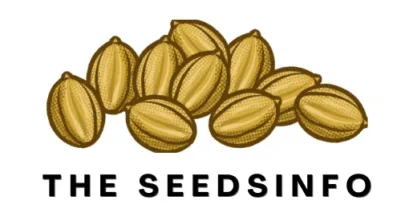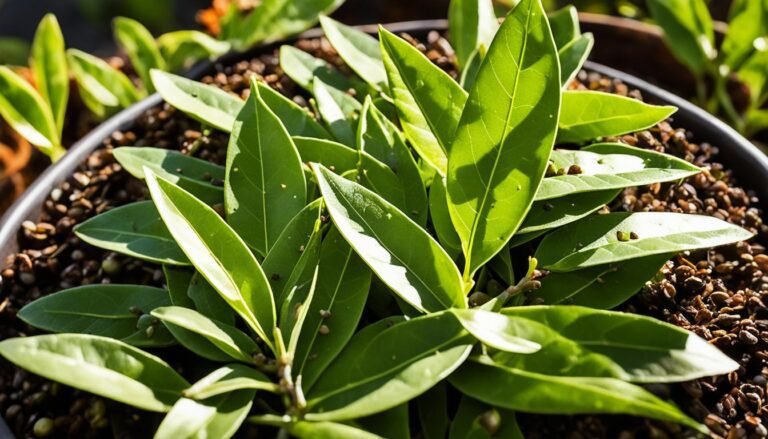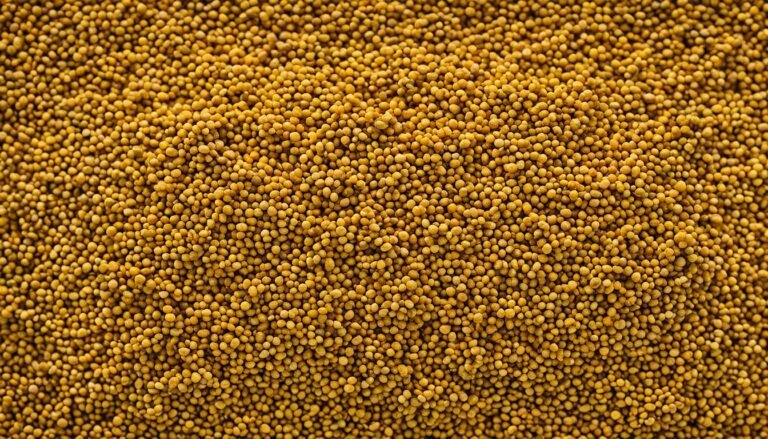Fennel Seeds for Breastfeeding: Benefits & Uses
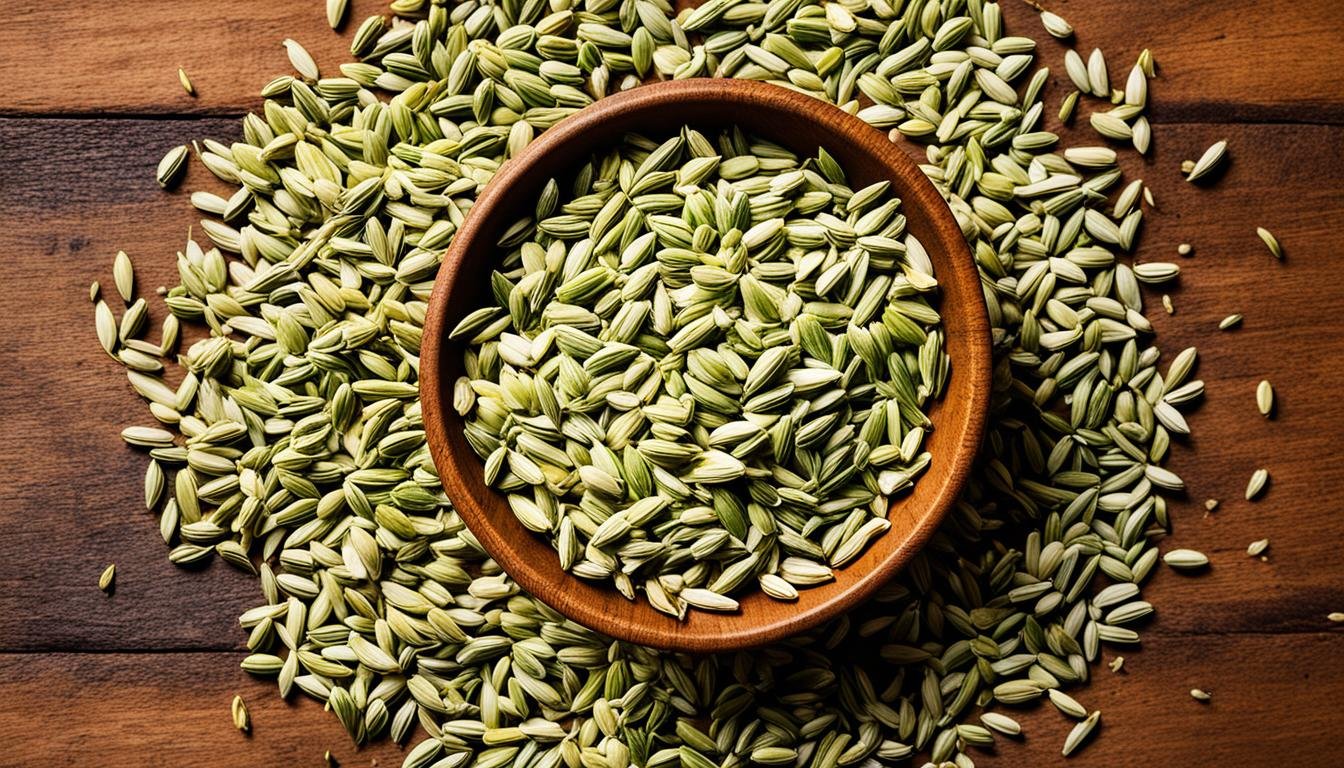
Are you a nursing mother finding it hard to increase your milk supply? Have you considered fennel seeds for breastfeeding but don’t know how to add them to your diet? You’re not alone. Many breastfeeding moms look to natural remedies like fennel to help with milk production and feed their babies.
Fennel (Foeniculum vulgare) is a versatile herb that has been used for centuries to boost breast milk. It’s a galactagogue, meaning it helps with lactation. You can enjoy fennel as a tea, vegetable, or spice to increase milk production. But what are the benefits of fennel seeds for breastfeeding, and how can they help you? Let’s look into how adding this tasty herb to your diet can support your breastfeeding journey.
Fennel Seeds: A Galactagogue Herb
As a breastfeeding mom, you might want to find natural ways to increase your milk supply. Fennel seeds are one herb that people talk about for this purpose. But what is a galactagogue, and how can fennel seeds help you in your breastfeeding journey?
What is a Galactagogue?
A galactagogue is something that helps increase breast milk production. It can be natural or made in a lab. Fennel seeds are seen as a natural option because they might have compounds that help nursing moms.
Fennel Seeds as a Natural Milk Supply Booster
Fennel seeds have been used for a long time to help make more breast milk. They contain compounds like anethole that might help with milk production. Some studies show that fennel could increase milk volume and help babies grow, making it a choice for breastfeeding moms.
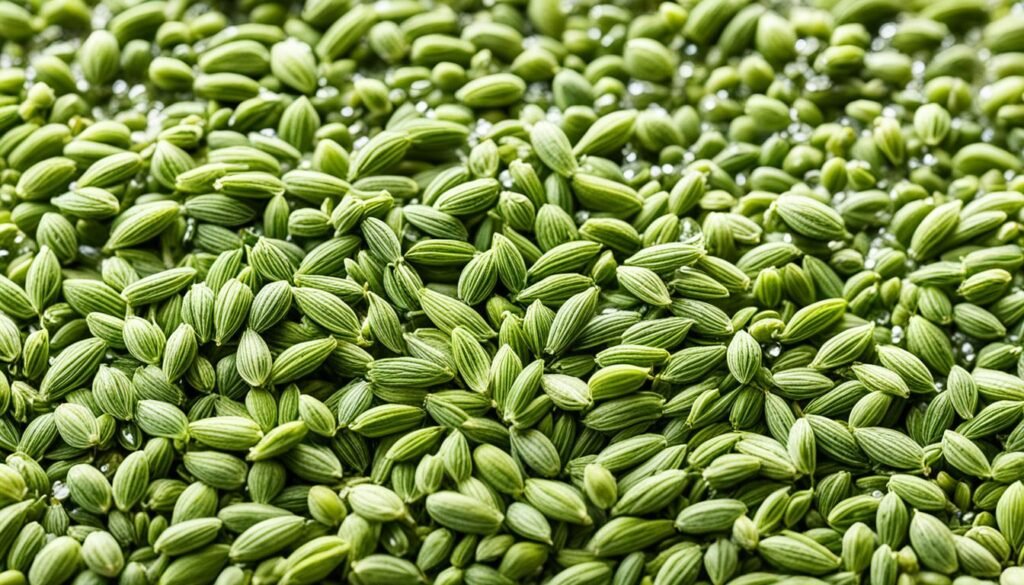
But, it’s important to know that fennel seeds aren’t proven to work as a galactagogue. Out of 23 foods thought to help with milk supply, there’s not much solid evidence. Yet, many moms say that adding fennel seeds to their diet has helped.
fennel seeds for breastfeeding
Fennel seeds are a great way to boost milk supply for nursing moms. They come in many forms to fit your diet easily. Here are some ways to add fennel seeds to your meals:
- Capsules: You can find fennel supplements in stores and online. They make getting the herb’s benefits easy.
- Herb/Spice: Add whole or ground fennel seeds to your recipes, teas, and dishes. It’s a natural way to support your diet.
- Seeds: Chew fennel seeds raw, roast them, or mix them into snacks and baked goods.
- Vegetable: Eat fennel raw or cooked in soups, stews, or other dishes. It’s a tasty way to support your lactation.
To make a calming fennel tea, steep 1-3 teaspoons of crushed fennel seeds in boiling water for 10-20 minutes. Drink this tea 5-6 times a day to help with milk production.
Talk to your healthcare provider or lactation consultant before using fennel seeds or other breastfeeding supplements. They can help ensure they’re safe and right for you.
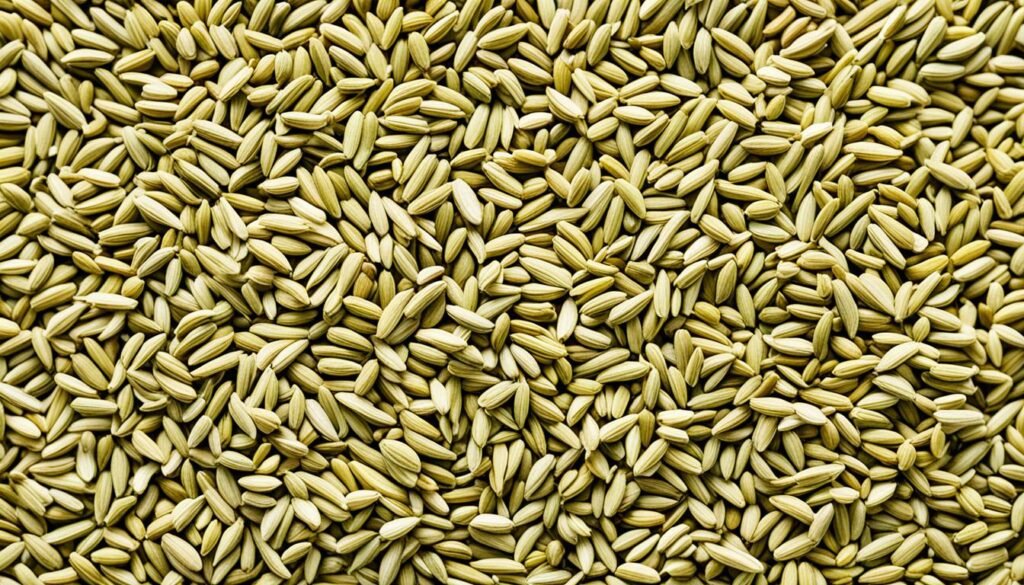
Benefits of Fennel Seeds for Nursing Mothers
Fennel seeds are more than just a natural way to boost milk supply for nursing moms. They are full of nutrients, antioxidants, and compounds that help with breastfeeding health. These seeds are a great addition to a postpartum diet.
Fennel seeds are loaded with vitamins and minerals like vitamin C, calcium, magnesium, and manganese. These nutrients are important for postpartum health and recovery. They help meet the nutritional needs of breastfeeding women.
- The polyphenol antioxidants in fennel, such as rosmarinic acid and quercetin, have anti-inflammatory effects. This can help nursing moms with postpartum pain or discomfort.
- Fennel is known to ease digestive issues like gas, bloating, and colic in babies. This is a big help for new moms.
- Some studies show that fennel seeds might help with appetite control. This could be useful for managing postpartum weight.
While fennel seeds aren’t a surefire way to increase milk supply, they offer many other benefits. Adding them to your diet can support your health and breastfeeding journey.

Potential Side Effects and Precautions
Fennel seeds are usually safe when eaten in small amounts. But, there are some things to keep in mind. This is especially true for breastfeeding mothers and those pregnant.
Safety Considerations During Pregnancy
Fennel has strong effects on estrogen and might not be safe for pregnancy. It could affect the baby’s development. So, pregnant women should not take fennel supplements.
Interactions with Medications
Fennel might not mix well with some medicines. This includes estrogen pills and certain cancer treatments. Breastfeeding mothers should talk to their doctor before taking fennel supplements.
It’s best to avoid large amounts of fennel, like from essential oils or strong extracts. Eating fennel in food or as tea is the safest way.
- Fennel may increase the risk of seizures in individuals with epilepsy or other seizure disorders.
- Topical application of fennel may cause skin allergies or reactions in some people.
Breastfeeding mothers should be careful with fennel supplements. They might affect certain medicines, such as:
- Estrogen-containing medications: Fennel could affect the work of estrogen-based birth control or hormone therapy.
- Cancer medications: Fennel might not work well with some cancer treatments. Always talk to your doctor about it.
- Diabetes medications: Fennel can lower blood sugar levels. This could be a problem with diabetes drugs.
- Seizure medications: Fennel might make seizures worse in people with epilepsy or other seizure disorders.

Research on Fennel Seeds and Breastmilk Production
The study on fennel seeds for breastfeeding, natural milk supply boosters, lactation support, and increasing milk production is not very clear. Some small studies hint that fennel might help increase milk volume and help babies grow. But, other studies didn’t find any big effects on milk or baby health.
For example, one study gave 18 breastfeeding moms 100 mg of trans-anethol in a capsule. They found the milk had certain levels of the substance at different times after taking it. Another study gave 12 nursing moms 100 mg of 1,8 cineole through special capsules. The milk had levels of this substance that varied a lot.
But, a study with five women who drank fennel-anise-caraway tea didn’t show any big change in milk’s terpene content. Also, a mix of fennel, anise, cumin, dill, parsley, and fennel flower didn’t help with breast milk volume or baby weight gain.
We need more good research to really know if fennel works well as a galactagogue. Fennel might help a little when used with other support methods. Breastfeeding moms should talk to their healthcare provider about using fennel.
Fennel Seeds: A Traditional Galactagogue
Fennel has been a trusted galactagogue for centuries. Women have used it to increase their breast milk. It’s known for its ability to boost milk production thanks to its estrogen-like qualities.
These qualities may help stimulate the hormone prolactin. This hormone is key for milk production.
Historical Use of Fennel for Lactation
In many cultures, fennel has been a go-to for lactation support. It’s part of Ayurvedic, Chinese, and European folk medicine. Its benefits for breastfeeding have been noted since ancient times.
References to its galactagogue effects can be found in writings from ancient Egypt, Greece, and Rome.
- Fennel makes up 25% of NutraMother, a tea blend for healthy breastfeeding.
- Anethole, a compound in fennel, boosts prolactin levels to stimulate milk production.
- Fennel seed tea helps with digestion by easing gas, firming stool, and fighting bacteria and inflammation.
- Fennel can ease gas and constipation in babies through breastmilk, making them more comfortable and reducing crying.
Fennel’s long history as a galactagogue shows its importance in supporting breastfeeding moms and their babies.
Incorporating Fennel Seeds into Your Diet
As a nursing mother, adding fennel seeds to your diet can help support your breastfeeding journey. These seeds are packed with benefits for milk supply and your health. Here are some tasty ways to include them in your meals and drinks.
Fennel Seeds in Cooking
Fennel seeds are easy to add to many dishes. Try them on roasted veggies, in soups and stews, or mix into pasta sauces for a unique flavor. They also work well in baked goods like breads, muffins, and crackers, adding a subtle yet tasty touch.
For a soothing drink, make fennel seed tea. Steep 1-3 teaspoons of crushed seeds in hot water for 10-20 minutes, then sip to enjoy its calming effects. Drink this tea often to help your milk supply and health.
For a crunchy snack, roast fennel seeds for a tasty, lactation-boosting treat. You can also chew on them directly, making it easy to add them to your diet.
When starting with fennel seeds, do it slowly and in small amounts. Talk to your healthcare provider before adding them to your diet to make sure they’re safe for you.
Other Potential Benefits of Fennel Seeds
Fennel seeds are more than just a galactagogue. They are full of antioxidants, fiber, and nutrients that boost your health. These tiny seeds can support your overall well-being.
Anti-inflammatory properties: Fennel seeds contain antioxidants like rosmarinic acid and quercetin. These can help reduce inflammation. This is great for nursing mothers who have postpartum discomfort or inflammation.
Digestive support: Fennel is known to ease digestive problems like gas, bloating, and colic in babies. It’s a natural remedy breastfeeding mothers use for their babies.
Potential appetite-suppressing effects: Some studies show that fennel seeds can help control appetite. This could be helpful for postpartum weight management after pregnancy and childbirth.
Antibacterial and antifungal properties: Fennel extract can stop harmful bacteria and yeasts like E. coli and Candida albicans. This is important for nursing mothers.
Potential benefits for mental health: Animal studies suggest that fennel extract may improve memory in older animals. It could also help with cognitive function in humans.
Fennel seeds offer many benefits for postpartum health. They can be a great addition to your routine, supporting your health and well-being as a nursing mother.
Combining Fennel Seeds with Other Galactagogues
Combining fennel seeds with other galactagogue herbs can boost your milk supply. Many supplements and teas mix fennel with herbs like fenugreek, alfalfa, stinging nettle, and blessed thistle.
Using a mix of galactagogue herbs and foods can help increase milk production better than one ingredient alone. You can try fennel with fenugreek or with other herbs like moringa, shatavari, or goat’s rue.
Always talk to a healthcare provider before trying galactagogue combinations. Fennel seeds for breastfeeding can be powerful when used with other natural boosters.
| Galactagogue Herb | Effect on Milk Supply |
|---|---|
| Fenugreek | Shown to be effective at increasing milk supply, recommended by health providers |
| Dill | Traditional use for lactation, found to be very effective in increasing breastmilk supply |
| Thai Basil | Proven to increase breast milk supply according to a 2017 study |
| Anise | Useful in increasing milk supply, with previous studies supporting its efficacy |
| Caraway | Effective at increasing milk supply in individuals producing milk |
Always talk to a healthcare provider before using galactagogue herbs to make sure they are safe and work well.
Seeking Professional Guidance
Fennel seeds are usually safe when eaten in small amounts. But, breastfeeding moms should talk to their healthcare provider or a lactation consultant before using them. These experts can tell you the right amount to take and warn you about any risks or side effects.
Boosting milk supply can be tough, and finding natural ways to help can be a big relief. But remember, even though fennel and other herbs are natural, they can be strong. They might not work for everyone. A supportive healthcare team can make breastfeeding better and more rewarding.
Fennel seeds can help increase breast milk and have been used for a long time as a galactagogue. But, it’s important to talk to a professional before adding them to your diet, especially if you’re on any medications or have health issues.
Lactation consultants are experts who give personalized advice on using fennel seeds and other breastfeeding supplements safely. They can also help with problems like low milk supply or latch issues. They offer great support during your breastfeeding journey.
It’s a good idea to talk to a healthcare provider or lactation consultant before trying fennel seeds or other breastfeeding supplements. This ensures you’re making a smart choice and keeping you and your baby safe.
Professional advice is crucial when dealing with natural remedies and supplements during breastfeeding. With the help of your lactation consultants, you can find the right mix of fennel and other support to make breastfeeding successful and enjoyable.
Conclusion
Fennel seeds have been used for a long time to help with breast milk production. Even though there’s not much research on how well fennel works, many breastfeeding mothers say it helps. They add fennel to their diet and see a good change.
Fennel seeds can be made into tea, used in cooking, or taken as a supplement. This can help with lactation. They also have other health benefits for nursing mothers, like reducing inflammation, helping with digestion, and possibly making you feel less hungry.
But, breastfeeding women should be careful with fennel. They should talk to their doctor or a lactation consultant before using it. This is because fennel might affect some medicines and isn’t safe during pregnancy. With advice from their healthcare team, breastfeeding mothers can try fennel and other natural remedies safely. This can help with their milk supply and postpartum nutrition.
FAQ
What is a galactagogue?
A galactagogue is a substance that helps increase the amount of breast milk a mother produces.
How do fennel seeds work as a natural milk supply booster?
Fennel seeds have compounds like anethole that help stimulate milk production. This can increase the amount of breast milk and help the baby grow.
How can breastfeeding mothers consume fennel seeds?
Mothers can take fennel seeds in many ways. They can be in capsules, seeds, or tea. It’s also good in cooking and baking.
What are the other benefits of fennel seeds for nursing mothers?
Fennel seeds are full of nutrients and can help with digestion. They might also help control hunger and have anti-inflammatory effects.
Are there any safety concerns or precautions to be aware of when using fennel seeds?
Fennel seeds should not be used by pregnant women because they can affect hormones. They might also interact with some medicines. High doses can be dangerous and may cause seizures in some people.
What does the research say about the effectiveness of fennel seeds for increasing breastmilk production?
Studies on fennel seeds and breastmilk are not clear. Some say it helps, but others don’t find a big difference. We need more research to know for sure.
How long has fennel been used as a traditional galactagogue?
People have used fennel to help with breastfeeding for thousands of years. It was mentioned in ancient Egypt, Greece, and Rome for this purpose.
How can fennel seeds be incorporated into a breastfeeding mother’s diet?
Mothers can add fennel seeds to their diet in many ways. They can cook with them, make tea, bake, or chew on the seeds raw.
Are there any other potential benefits of fennel seeds beyond their use as a galactagogue?
Yes, fennel seeds can help with inflammation, digestion, and might even help with weight loss. They also have antibacterial and antifungal properties and could improve mental health.
Can fennel seeds be combined with other galactagogue herbs?
Yes, many supplements and teas for breastfeeding moms include fennel with other herbs like fenugreek and nettle. This mix might work better than fennel alone.
When should a breastfeeding mother consult a healthcare provider or lactation consultant before using fennel?
Moms should talk to a doctor or lactation consultant before using fennel or any herbal remedies. This ensures it’s safe and right for them and helps avoid any problems.
